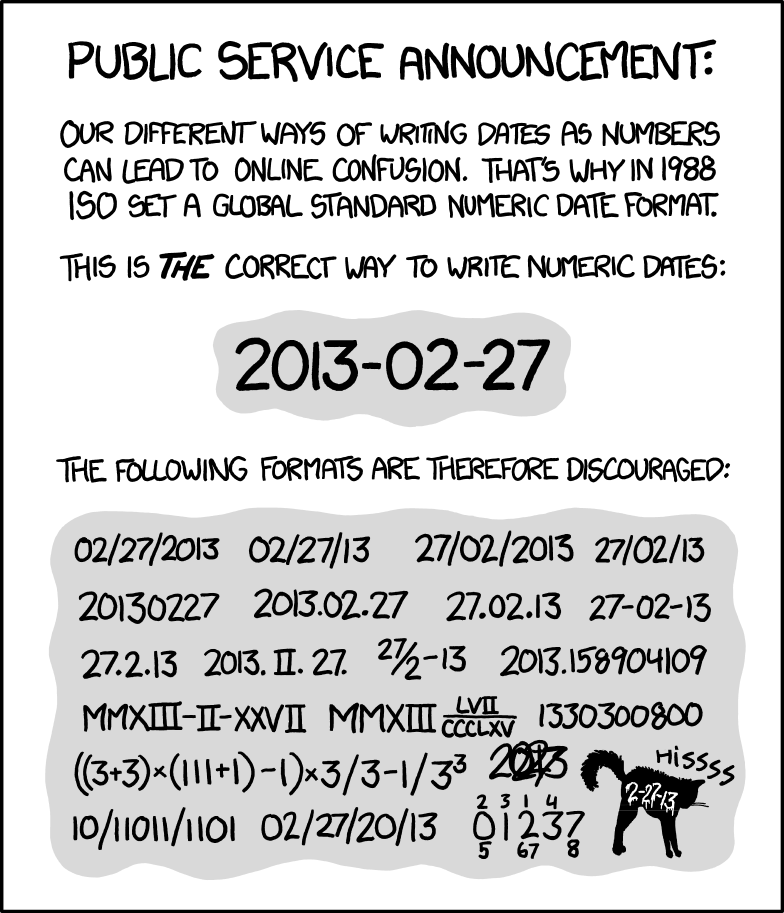Practice inclusive scheduling
Time zones are one of the harder parts of software development, but it doesn’t have to be one of the harder (or exclusionary) parts of working as a distributed team. Here are a few practices that I try to adhere to help practice more inclusive scheduling when working remotely:
- When discussing dates, consider writing numeric dates in ISO 8601 (YYYY-MM-DD) or other month/day unambiguous formats.
- When referring to a time, always include the timezone.
- Avoid location-specific language like “tomorrow”, “this afternoon”, or “in the spring”.
- Be mindful of holidays, weekends, and working hours, especially across time zones.
- Consider “speedy meetings” (end 5/10 minutes early or start 5/10 minutes late) to allow for time to be human between meetings, and be strict about ending at that earlier time.
- On that note, meetings should start and end on time. If you finish early, consider using the remainder of the time for informal conversations and to connect as humans.
A small nod to inclusively to go a long way to create a sense of belonging and reduce ambiguity, when working with global teams, schedule and communicate with a global (and remote) audience in mind.
If you enjoyed this post, you might also enjoy:
- 15 rules for communicating at GitHub
- Four characteristics of modern collaboration tools
- Twelve tips for growing communities around your open source project
- Eight tips for working remotely
- Why everything should have a URL
- Why open source
- 19 reasons why technologists don't want to work at your government agency
- Five best practices in open source: external engagement
- Leaders show their work
- The seven things a corporate Chief of Staff does
- Why you should work asynchronously
Ben Balter is the Director of Hubber Enablement within the Office of the COO at GitHub, the world’s largest software development platform, ensuring all Hubbers can do their best (remote) work. Previously, he served as the Director of Technical Business Operations, and as Chief of Staff for Security, he managed the office of the Chief Security Officer, improving overall business effectiveness of the Security organization through portfolio management, strategy, planning, culture, and values. As a Staff Technical Program manager for Enterprise and Compliance, Ben managed GitHub’s on-premises and SaaS enterprise offerings, and as the Senior Product Manager overseeing the platform’s Trust and Safety efforts, Ben shipped more than 500 features in support of community management, privacy, compliance, content moderation, product security, platform health, and open source workflows to ensure the GitHub community and platform remained safe, secure, and welcoming for all software developers. Before joining GitHub’s Product team, Ben served as GitHub’s Government Evangelist, leading the efforts to encourage more than 2,000 government organizations across 75 countries to adopt open source philosophies for code, data, and policy development. More about the author →
This page is open source. Please help improve it.
Edit